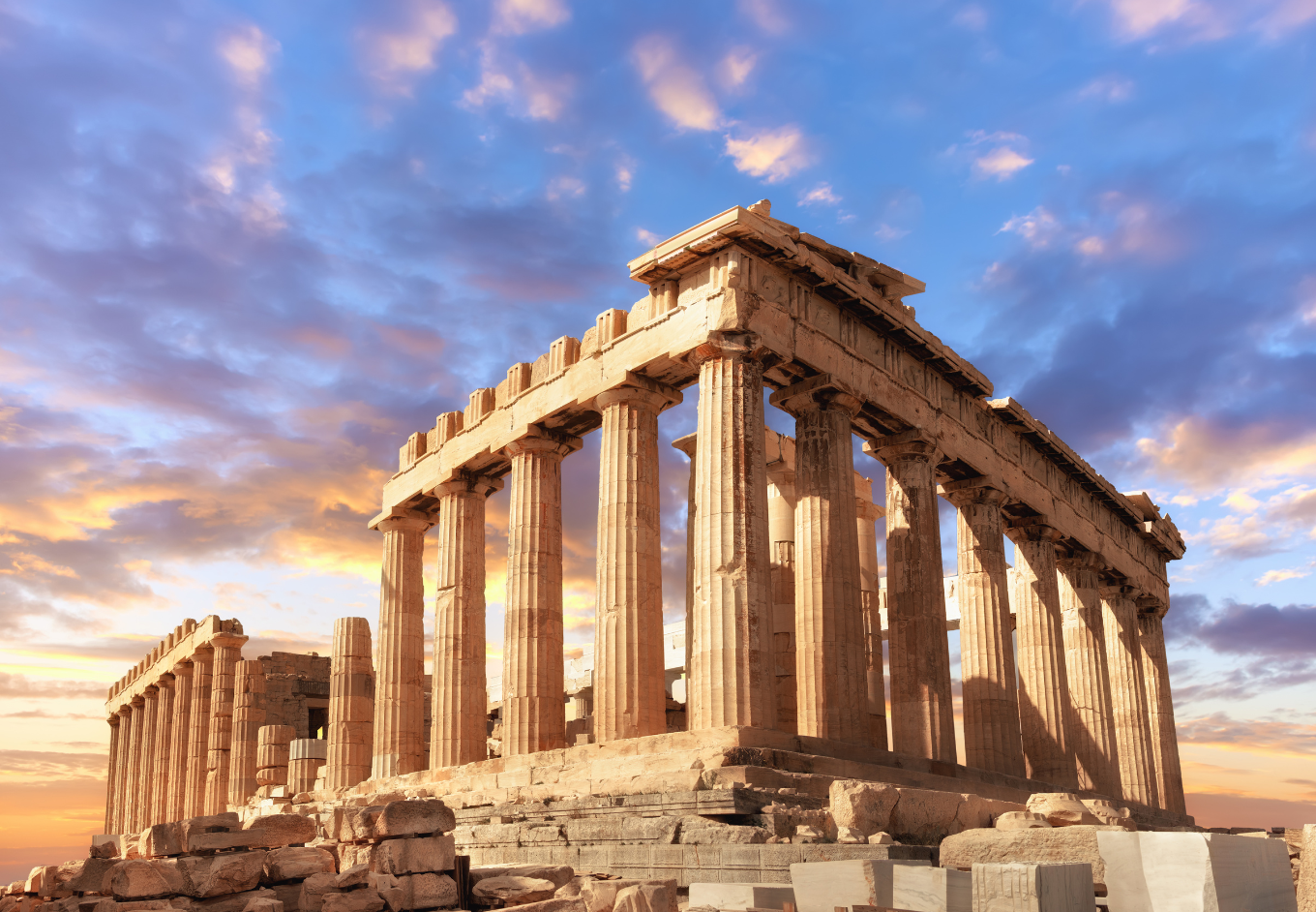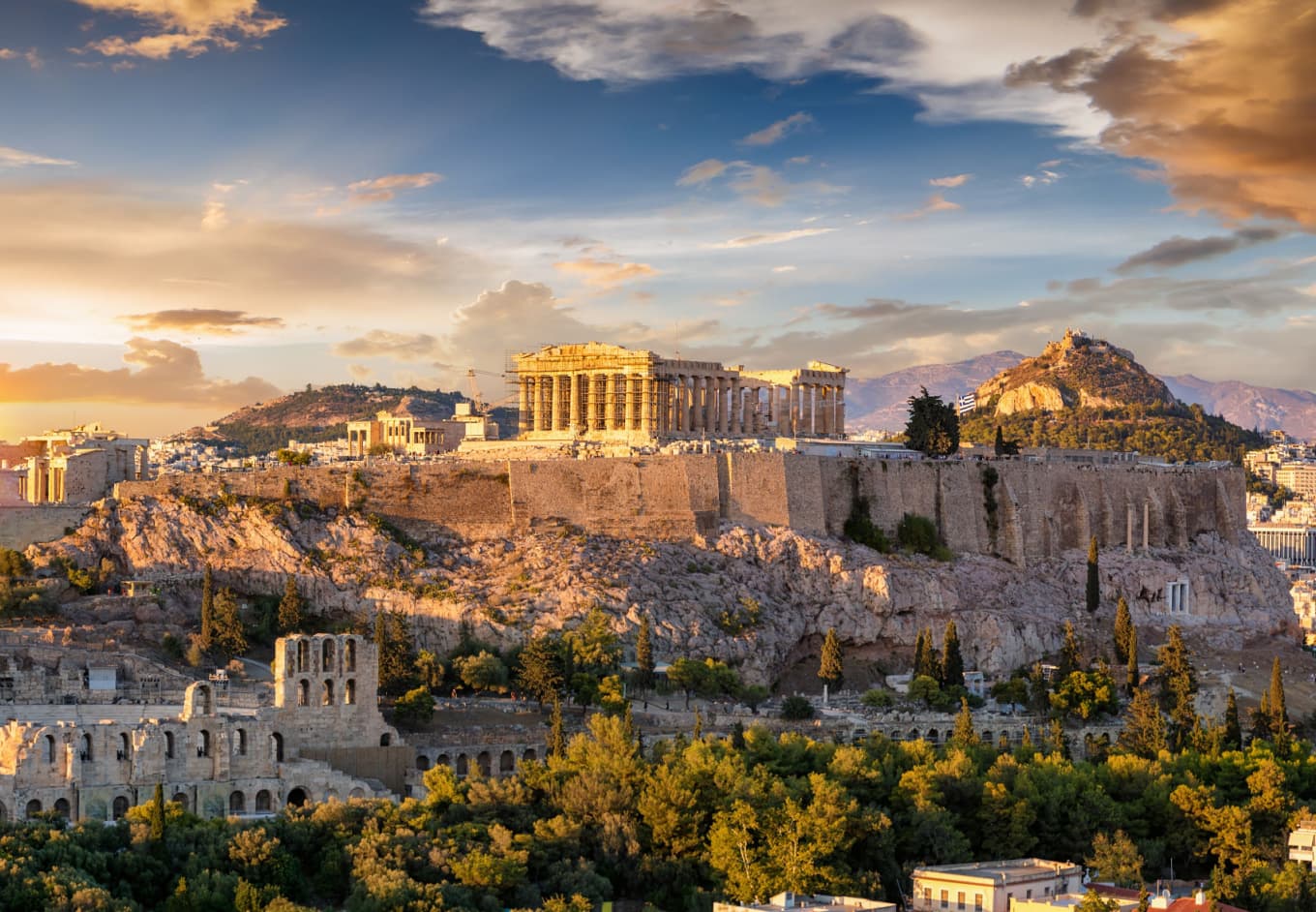
Greece, the cradle of Western civilization, a land steeped in myth and legend, and a haven of stunning natural beauty, beckons travelers with promises of unforgettable experiences. From the ancient ruins that whisper tales of gods and heroes to the sun-drenched beaches lapped by crystal-clear waters, Greece offers something for every type of adventurer. This comprehensive guide will navigate you through the top attractions, delve into its rich history, provide essential travel tips, explore accommodation options, discuss transportation, and help you determine the best time to experience the magic of Greece.
Unveiling the Jewels: Top Attractions to Explore
Greece is a treasure trove of historical sites and natural wonders. Here are some of the must-see attractions that should be on every traveler’s itinerary:

Related Articles about Greece: A Journey Through Myth, History, and Breathtaking Beauty:
- Whispers of the Incas: Your Definitive Travel Guide to Machu Picchu
- Bulgaria: A Jewel in the Balkans – Your Comprehensive Travel Guide
- Chiang Mai: A Traveler’s Guide to Northern Thailand’s Rose
- Unveiling the Wonders of Egypt: A Guide to the Land of Pharaohs
- Germany: A Tapestry of History, Culture, and Unforgettable Adventures
1. The Acropolis of Athens: No trip to Greece is complete without visiting the iconic Acropolis, perched atop a rocky outcrop overlooking Athens. This UNESCO World Heritage site is home to the Parthenon, a Doric temple dedicated to the goddess Athena, along with other magnificent structures like the Erechtheion and the Propylaea. Wander through these ancient marvels, marvel at the intricate details of the architecture, and imagine the bustling city that once thrived beneath your feet.
2. The Parthenon: The centerpiece of the Acropolis, the Parthenon, is a masterpiece of classical architecture. Dedicated to Athena Parthenos, the patron goddess of Athens, the temple’s sheer scale and the meticulous craftsmanship of its Doric columns are breathtaking. While much of its original sculptures are housed in the Acropolis Museum and the British Museum, the Parthenon still stands as a powerful symbol of Athenian democracy and cultural achievement.
3. The Acropolis Museum: Located at the foot of the Acropolis, the Acropolis Museum houses an unparalleled collection of artifacts recovered from the Acropolis site. From sculptures and friezes to architectural fragments, the museum offers a deeper understanding of the Parthenon and the Acropolis’s history. The museum’s modern design, with its vast glass windows, provides stunning views of the Acropolis itself, creating a seamless connection between the past and the present.
4. Delphi: Venture north of Athens to Delphi, the ancient sanctuary dedicated to Apollo, the god of light, music, and prophecy. This UNESCO World Heritage site was once considered the center of the world, and its oracle was consulted by rulers and individuals alike. Explore the Temple of Apollo, the ancient theater, and the stadium, imagining the rituals, competitions, and pronouncements that once took place within these hallowed grounds.
5. Meteora: Experience a surreal landscape at Meteora, where towering rock formations rise dramatically from the Thessalian plain. Perched atop these sandstone pillars are ancient monasteries, built by monks seeking solitude and spiritual connection. Explore the six remaining monasteries, each a testament to human ingenuity and devotion, and marvel at the breathtaking views of the surrounding countryside.
6. Santorini: Picture-perfect Santorini, with its whitewashed villages clinging to volcanic cliffs overlooking the Aegean Sea, is a postcard-worthy destination. Explore the villages of Oia, Fira, and Imerovigli, known for their stunning sunsets and vibrant nightlife. Relax on the black sand beaches, take a boat trip to the volcanic island of Nea Kameni, and savor the local cuisine while gazing at the mesmerizing caldera.
7. Mykonos: Known for its lively atmosphere, Mykonos is a popular destination for those seeking sun, sand, and nightlife. Explore the charming Mykonos Town with its iconic windmills, whitewashed houses, and narrow, winding streets. Relax on the beautiful beaches, such as Paradise and Super Paradise, and enjoy the island’s vibrant energy.
8. Crete: The largest of the Greek islands, Crete offers a diverse range of experiences, from ancient Minoan ruins to stunning beaches and rugged mountain landscapes. Explore the Palace of Knossos, the legendary home of King Minos and the labyrinth. Hike through the Samaria Gorge, one of Europe’s longest gorges, and relax on the beaches of Elafonisi and Balos Lagoon, known for their pink sand and turquoise waters.
9. Rhodes: The island of Rhodes, steeped in history and natural beauty, is a fascinating destination. Explore the medieval city of Rhodes, a UNESCO World Heritage site, with its well-preserved fortifications, cobbled streets, and historical buildings. Visit the Acropolis of Lindos, perched atop a cliff overlooking the sea, and relax on the beaches of Faliraki and Tsambika.

10. Ancient Olympia: Journey to the Peloponnese peninsula and visit Ancient Olympia, the birthplace of the Olympic Games. Explore the ruins of the stadium, the Temple of Zeus, and the gymnasium, imagining the athletic competitions and religious ceremonies that once took place here. The Archaeological Museum of Olympia houses an impressive collection of artifacts, including the famous sculptures from the Temple of Zeus.
A Journey Through Time: Understanding Greek History
Greece’s rich history is the foundation of Western civilization. Here’s a glimpse into its key periods:
- Ancient Greece (c. 2700 BC – 146 BC): This era witnessed the rise of city-states like Athens and Sparta, the development of democracy, philosophy, and the arts, and the legendary conflicts of the Persian Wars and the Peloponnesian War.
- Hellenistic Period (323 BC – 146 BC): Following the conquests of Alexander the Great, Greek culture spread throughout the Eastern Mediterranean, creating a vibrant blend of Greek and Eastern influences.
- Roman Era (146 BC – 330 AD): Greece became a province of the Roman Empire, and its culture continued to flourish, influencing Roman art, architecture, and philosophy.
- Byzantine Empire (330 AD – 1453 AD): The Eastern Roman Empire, centered in Constantinople (modern-day Istanbul), preserved Greek culture and language for over a thousand years.
- Ottoman Rule (1453 – 1829): Greece was under Ottoman rule for centuries, leading to a period of cultural and political change.
- Greek War of Independence (1821 – 1829): Greece fought for its independence, ultimately gaining freedom and establishing the modern Greek state.
- Modern Greece (1829 – Present): Greece has undergone significant political and social changes, including periods of monarchy, dictatorship, and democracy. Today, it is a member of the European Union and a popular tourist destination.
Essential Travel Tips for a Smooth Journey
- Best Time to Visit: The shoulder seasons (April-May and September-October) offer pleasant weather, fewer crowds, and lower prices. Summer (June-August) is hot and crowded, while winter (November-March) can be rainy and cold, but offers the advantage of seeing snow-capped mountains and fewer tourists.
- Currency: The Euro (€) is the official currency of Greece. Credit and debit cards are widely accepted, but it’s always wise to carry some cash, especially in smaller towns and for smaller purchases.
- Language: Greek is the official language. English is widely spoken in tourist areas, but learning a few basic Greek phrases is always appreciated.
- Transportation: Greece offers various transportation options:
- Flights: Internal flights are available, connecting major islands and cities.
- Ferries: Ferries are a popular way to travel between the islands.
- Buses: KTEL buses operate throughout the mainland and offer an affordable way to travel.
- Rental Cars: Renting a car gives you flexibility, especially for exploring the mainland and more remote areas. Be aware of narrow roads and traffic in urban areas.
- Taxis: Taxis are readily available in cities and tourist areas.
- Accommodation: Greece offers a wide range of accommodation options, from budget-friendly hostels and guesthouses to luxury hotels and villas. Consider booking in advance, especially during peak season.
- Food and Drink: Indulge in Greek cuisine, including fresh seafood, souvlaki, moussaka, and spanakopita. Sample local wines and spirits, such as ouzo and tsipouro.
- Safety: Greece is generally a safe country. However, be aware of pickpockets in crowded tourist areas and take precautions to protect your belongings.
- Respect Local Customs: Dress modestly when visiting religious sites. Be mindful of noise levels and cultural sensitivities.
- Pack Accordingly: Pack light clothing, comfortable shoes for walking, sunscreen, a hat, and a swimsuit.
- Learn a Few Phrases: Knowing basic Greek phrases like "Hello" (Γεια σου/Yia sou), "Thank you" (Ευχαριστώ/Efharisto), and "Please" (Παρακαλώ/Parakalo) can enhance your interactions with locals.
- Bargaining: Bargaining is common in markets, but not expected in shops or restaurants.
Accommodation Options for Every Traveler
Greece offers diverse accommodation choices catering to every budget and preference:
- Hotels: Ranging from budget-friendly hotels to luxurious resorts, offering a wide range of amenities.
- Villas: Ideal for families and groups, providing privacy and space. Villas often come with private pools and stunning views.
- Apartments/Studios: Self-catering options, perfect for longer stays and those seeking more independence.
- Guesthouses/B&Bs: Offer a more personal and intimate experience, often run by local families.
- Hostels: Budget-friendly options for backpackers and solo travelers, offering dormitory-style rooms and communal areas.
- Camping: Available on many islands and the mainland, offering a more adventurous and affordable option.
Navigating the Greek Landscape: Transportation Options
- Flights: Convenient for traveling between major islands and cities, especially for saving time. Airlines like Aegean Airlines and Sky Express offer domestic flights.
- Ferries: The primary mode of transport for island hopping. Several ferry companies operate, including Blue Star Ferries, Hellenic Seaways, and SeaJets. Book ferry tickets in advance, especially during peak season.
- Buses (KTEL): A cost-effective way to travel on the mainland and some islands. Buses are reliable and connect most towns and cities.
- Rental Cars: Offer flexibility and independence, especially for exploring the mainland and remote areas. Be prepared for narrow roads and challenging driving conditions.
- Taxis: Readily available in cities and tourist areas. Agree on a fare beforehand to avoid surprises.
- Trains: Limited train services are available on the mainland, primarily connecting major cities like Athens, Thessaloniki, and Patras.
Choosing the Best Time to Visit Greece
The best time to visit Greece depends on your priorities:
- Shoulder Seasons (April-May and September-October): Offer the most balanced experience. The weather is generally pleasant, the crowds are smaller, and prices are more affordable. The sea is warm enough for swimming.
- Summer (June-August): The peak season, characterized by hot weather, crowded beaches, and higher prices. Ideal for those who enjoy sunbathing and lively nightlife.
- Winter (November-March): Offers a quieter experience with fewer tourists. The weather can be unpredictable, with rain and cold temperatures in some regions. Some islands and attractions may be closed during this period. However, this is the time to experience the authentic Greek culture, skiing and snow-capped mountains.
Greece, with its rich history, stunning landscapes, and warm hospitality, offers an unforgettable travel experience. By planning your trip with the information provided, you’ll be well-prepared to explore its top attractions, navigate its transportation options, and create lasting memories of this enchanting land. From the ancient wonders of the Acropolis to the sun-kissed beaches of Santorini, Greece awaits, ready to captivate your senses and leave you yearning to return.





